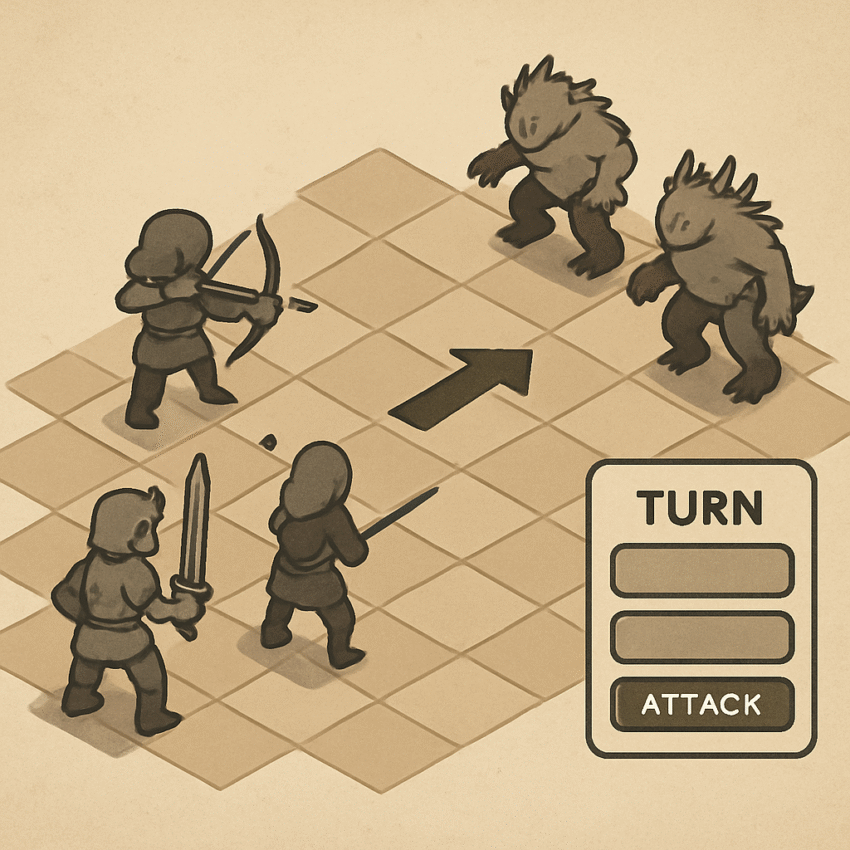In an industry increasingly obsessed with fluidity, spectacle, and instant gratification, turn-based combat stands defiant—unbothered, unhurried, and intellectually poised. It is a genre structure not defined by its lack of urgency, but by its abundance of intent.
Turn-based systems grant players more than a pause—they offer a canvas for deliberation. Each turn is a declaration of priority, a negotiation with risk, a moment of interiority translated into action. While real-time systems simulate chaos and reflex, turn-based mechanics simulate consequence.
From early Final Fantasy and Tactics Ogre to the crisp parsing of Into the Breach, every action is a tiny manifesto: this move, at this time, in this order. No matter how flashy the effects or stylized the sprites, the genre’s core artistry remains its pacing—strategic breathing room as a storytelling device. In turn-based combat, the player is not just reacting—they are composing. Each decision, no matter how small, becomes part of a larger tactical narrative.
And that pacing has narrative weight. Every slow march toward the boss, every methodical healing cycle, every death a preventable blunder, all exist within the grand aesthetic of deliberation. Time is on your side—but responsibility is too.
In this space, player cognition isn’t challenged by timing—it’s challenged by foresight, planning, and regret. And in the deliberateness of turn-based design, we find one of gaming’s purest expressions of agency.
